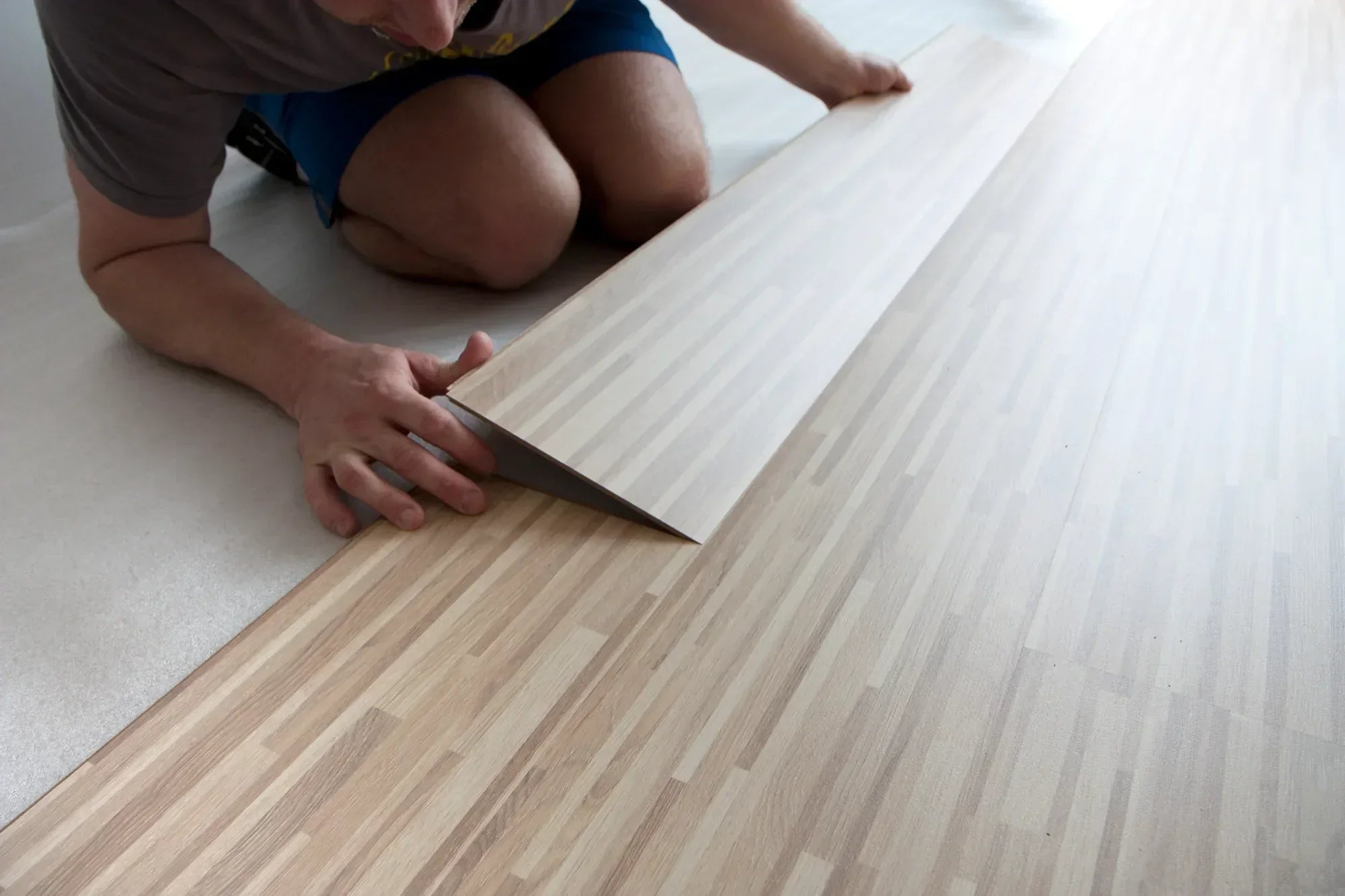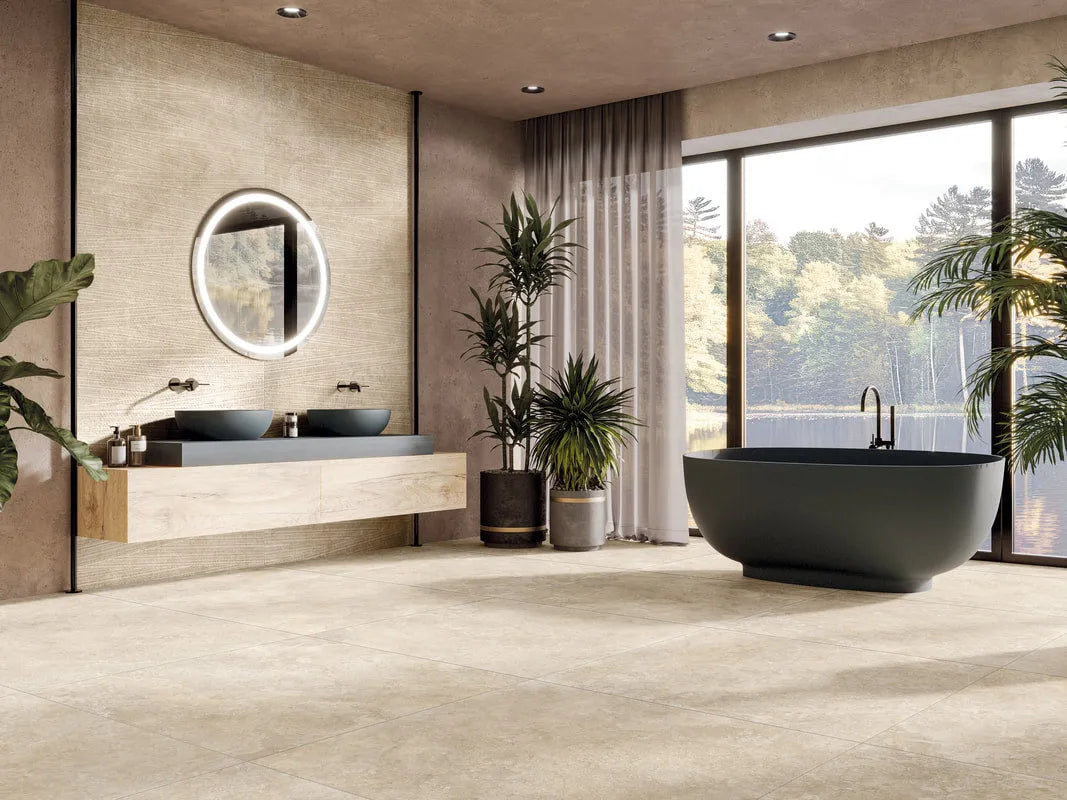Choosing the right wood species for your flooring is one of the most important factors when renovating or building a new home. Not only does it influence the appearance of your space, but it also affects its durability, maintenance, and comfort. The type of wood you choose can also affect your property's resale value. Whether you're drawn to the warmth of oak, the modernity of maple, or the sophistication of walnut, each wood species offers advantages worth considering before making a final choice.
Summary
- Why choosing the right wood species is crucial for a quality floor
- Criteria to consider when choosing the type of flooring wood
- The best wood species for flooring in Quebec
- North American Hardwoods: Choosing the Right Flooring Wood Species for Your Needs
- Exotic wood species to consider for high-end flooring
- FAQ – Choosing the wood species for your floor
Why choosing the right wood species is crucial for a quality floor
Choosing the right wood species for your flooring depends on several factors that will influence the appearance, functionality, and longevity of your flooring . Wood flooring species vary in terms of hardness, moisture resistance, ease of maintenance, and, of course, aesthetics. These factors should be evaluated based on your lifestyle. For example, a family with children and pets will have different needs than a person living alone in an apartment.
Softwoods like pine or fir will be more susceptible to scratches, while hardwoods like maple or jatoba will resist wear better. Additionally, some woods are easier to maintain due to their natural ability to repel stains and resist moisture, which is crucial in rooms like the kitchen or basement.

Criteria to consider when choosing the type of flooring wood
The choice of wood species for flooring is based on several important criteria to take into account to guarantee the quality and durability of your installation.
1. Hardness and impact resistance
Wood hardness is a key criterion, measured by the Janka test . This test assesses the wood's resistance to denting. Harder wood species, such as jatoba, maple, or oak, are ideal for high-traffic rooms. These woods are less likely to deteriorate quickly due to animal claws or repeated impacts.
2. Resistance to humidity and climatic changes
Moisture resistance is crucial, especially in rooms like the kitchen or basement , which may be exposed to humidity fluctuations. Some woods, such as ash or cumaru, are more resistant to these changes and do not warp easily. It is important to choose a wood that is suitable for the environment of the room in which it will be installed.
3. Aesthetics and style
Wood is a natural material that brings warmth and elegance to any interior. The grain, color, and natural nuances of a wood play a major role in the ambiance of a room. For example, walnut or cherry wood will add a touch of sophistication, while maple or red oak will suit a more classic or contemporary style.
The best wood species for flooring in Quebec
Quebec offers a wide variety of wood flooring species, ranging from local hardwoods to high-end exotic woods. Here are some of the best options for your home renovation or new construction project:
Red oak: a warm and versatile classic

Red oak is a very common wood species in Quebec. It is prized for its pronounced texture and warm hue. Resistant to humidity variations, it is ideal for high-traffic areas such as living rooms and kitchens. It also offers a wide variety of finishes and stains, easily adapting to different decorative styles.
Maple: modernity, clarity and resistance
Maple is a very hard wood, often chosen for its light color and subtle grain. Perfect for modern, clean decors, it resists scratches well and is easy to maintain. With a high hardness ( 1450 on the Janka scale ), maple is ideal for high-traffic areas.
Cherry: elegance and natural softness
Cherry wood is prized for its fine grain and warm color, which ranges from blond to reddish. This wood is ideal for bedrooms or living rooms, where it can create an elegant and intimate ambiance. It is also relatively easy to maintain.
Walnut: richness and refinement
Walnut is a premium choice, prized for its dark hue and contrasting grain. It's perfect for high-end projects, adding sophistication and warmth. Less hard than oak or maple, it's better suited to moderate-use areas.
Ash: a sustainable alternative to oak
Ash is a flexible and impact-resistant wood. It has a pronounced grain and a whitish to light brown hue, making it a modern alternative to oak. Ash is also valued for its flexibility, making it suitable for wider applications, including large-area flooring.
Beech: a hardwood with a soft appearance
Beech has a uniform grain and a pale, slightly pinkish hue. It is particularly suited to bright interiors. Its hardness and stability make it an attractive choice for large spaces or commercial projects.
North American Hardwoods: Choosing the Right Flooring Wood Species for Your Needs
White oak
White oak is a hardy species, ideal for high-traffic areas. It is particularly valued for its distinctive grain and light color, offering excellent stability in the face of temperature and humidity fluctuations. Native primarily to the United States and southern Quebec , it is often used in kitchens, living rooms, and basements due to its durability and classic appearance.
Hickory
Hickory is one of the hardest and most durable woods, ideal for high-traffic areas. Its distinctive grain and colors ranging from light beige to dark brown bring a unique touch to each project. Primarily found in Canada and widely grown in the United States , it is often used in kitchens, entryways, and other high-traffic areas due to its resistance to impact and wear.
American walnut

American walnut is prized for its dark hue and refined grain, bringing a natural elegance to any room. Although it is less scratch-resistant than some other woods, its beauty makes it a high-end choice for living rooms and offices. This wood is sourced primarily from the United States and occasionally from southern Canada , where it is used for prestigious projects and luxury furniture.
Exotic wood species to consider for high-end flooring
Exotic hardwoods are ideal for high-end projects thanks to their durability and unique aesthetic. If you're looking for flooring with a distinctive touch, these woods are an excellent choice.
Jatoba: very hard and very durable
Jatoba (or Brazilian cherry) is one of the hardest woods available, scoring 2350 on the Janka scale. This wood is resistant to scratches and impacts, making it an excellent choice for high-traffic areas. Its warm red color and dense grain are popular in modern projects.
Cumaru: extreme resistance and varied colors
Nicknamed "Brazilian teak," cumaru offers exceptional resistance to shock and moisture. It is suitable for both indoor and outdoor use (terraces, balconies). Its rich appearance, with honey to chocolate tones, is ideal for rustic or tropical decors.
Acacia: original and trendy
Acacia offers highly contrasting hues ranging from light blonde to dark brown, with distinctive grain. It adds a touch of originality and character to any room. It's a relatively hard wood, but may require a little more care depending on the finish chosen.
|
Wood Essence |
Cost per p² |
Shock and scratch resistance |
Ease of maintenance |
Hardness (Janka) |
|---|---|---|---|---|
|
Cherry (yellow birch) |
$$ |
Weak |
★★★ |
1260 |
|
American Walnut |
$$$$ |
Average |
★★★ |
1010 |
|
Red Oak |
$$ |
Average |
★★★★ |
1290 |
|
Beech |
$$ |
Average |
★★★★ |
1300 |
|
Ash |
$$ |
Good |
★★★★★ |
1320 |
|
White Oak |
$$$ |
Good |
★★★★ |
1360 |
|
Maple |
$$$ |
Good |
★★★★★ |
1450 |
|
Acacia |
$$$$ |
Good |
★★★★ |
1800 |
|
Hickory |
$$$$ |
Excellent |
★★★★ |
1820 |
|
Cumaru |
$$$$ |
Excellent |
★★★★★ |
3540 |
|
Jatoba |
$$$$ |
Excellent |
★★★★★ |
2350 |
Conclusion
Choosing the ideal wood species for your flooring is essential to ensure durability and aesthetics that meet your needs, whether you're renovating or building a new home. By considering strength, style, and room type, you can make the best choice. Whether you opt for local hardwood or exotic wood, there's a species perfect for every project.
For more advice, visit our showroom in Laval or request a free quote now. Our advisors will be happy to guide you!
FAQ – Choosing the wood species for your floor
What is the most durable wood species for flooring?
Jatoba is one of the hardest and most scratch-resistant wood species. It is perfect for high-traffic areas.
What type of wood is the most affordable?
Red oak and cherry offer excellent value among local hardwoods.
Can you install hardwood flooring in a basement?
No, hardwood floors are generally not recommended for basements due to moisture. Engineered wood or wood-look vinyl flooring is preferable in this case.
What type of wood ages best?
Walnut and oak age very well over time and develop a beautiful patina. Oiled woods are also easier to repair and age gracefully.



